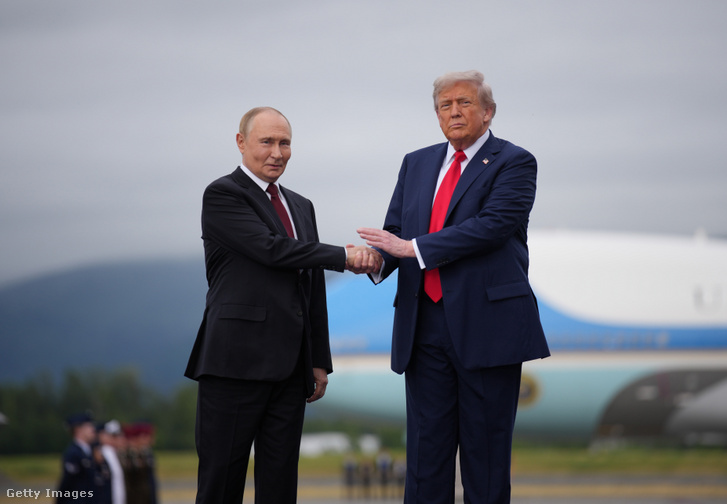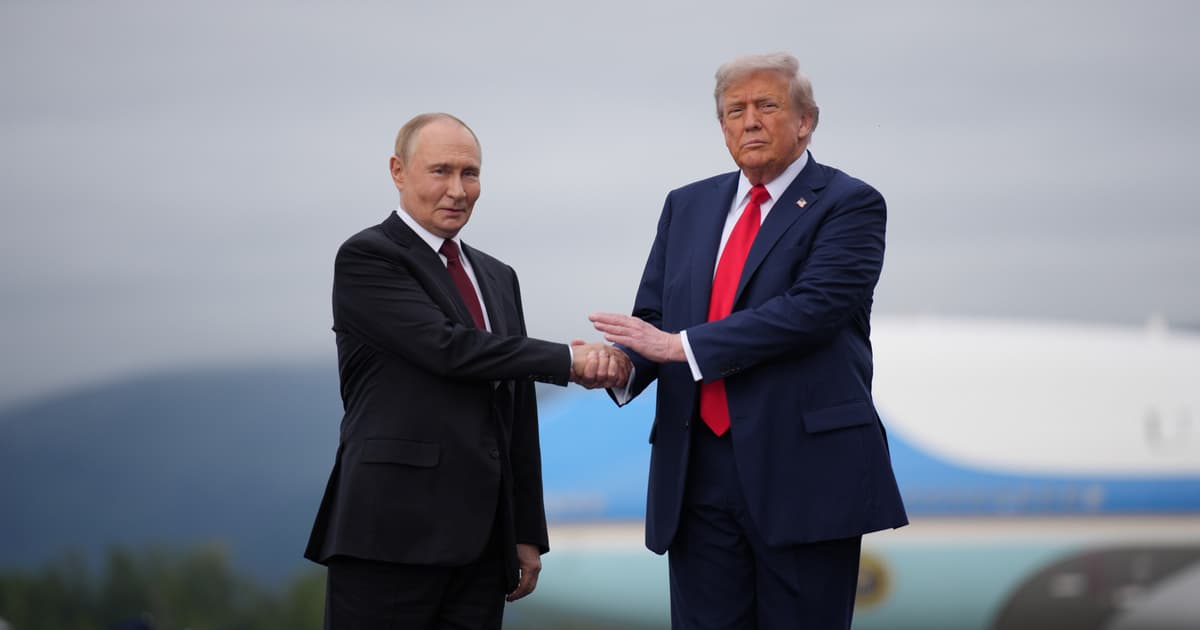Budapest has become the focus of international attention after it emerged that Donald Trump and Vladimir Putin have chosen the Hungarian capital as the venue for their next meeting. The timing and location of the meeting carry a geopolitical message: it offers both leaders an opportunity to strengthen their positions in the debates on war, sanctions and the future of the European security order. The Budapest summit could signal both a reinterpretation of East-West relations and an appreciation of the diplomatic role of the Central European region, with Kiev and Brussels closely watching developments.
This is Index's geopolitical column, World Game, where we provide weekly analyses of the most important developments in international politics and conflicts. Analysts help us understand global processes, great power interests, and their impact on world politics.

The path to peace is narrow but open
As it turned out, Donald Trump suggested the Hungarian capital as the venue for the meeting, and Vladimir Putin supported the idea. András Kosztur geopolitical analyst pointed out:
Budapest may be a suitable location for the American president because it is the capital of an allied state that has maintained normal relations with Russia.
Since the beginning of the war, Hungary has advocated for a peaceful settlement as soon as possible and has not supported Ukraine with weapons, so although it is not completely neutral in Russian-Western relations, it is considered a location that has practically been left out of the Russian-Ukrainian war. This has previously made Turkey and Saudi Arabia suitable negotiating locations.
"Russian presidential spokesman Dmitry Peskov also said that Hungary's unique position within NATO, with which it consistently stands up for its own interests, has earned the respect of both Trump and Putin," added András Kosztur.
The telephone conversation between the two presidents, after which the meeting was announced, was initiated by Vladimir Putin.
Putin's goal may have been to stop Trump's increasingly critical approach to the Russians, and the topicality may have been given by Volodymyr Zelensky's visit to Washington. In recent days, there has been increasing talk that the United States may transfer Tomahawk missiles to Ukraine, and the Russian side has indicated that this would mean the end of the negotiation process. Thursday's consultation and the announcement of the meeting may indicate that the missiles will not be transferred in the end, and the negotiation process will continue. This has bought both sides time, as neither is interested in severing relations, even if the conflicts of interest surrounding Ukraine are constantly pushing them in this direction. The Russian side has so far handled Trump's mood swings well, and has made gestures with timing that did not lose anything, and the American president has adapted his rhetoric accordingly
– said the analyst.
He emphasized that despite all speculation - about his backing away from Ukraine or, on the contrary, his commitment to Ukraine in light of the developments of recent weeks - Trump is sticking to his own line and continues to work to create peace.
It is important to emphasize again that the path open to Trump – if he does not want to give in to the Russians, but does not want to become Bidenized either – is quite narrow. Despite the deviations in one direction or another, he does not want to deviate from it. This path promises a slow, not necessarily uniform de-escalation, and in this respect it seems to be working, although it is a fact that Trump would have expected much faster progress from the peace process than is currently the case. However, the logic of the American president is already known: Trump always puts pressure on the more recalcitrant party, which has recently been Russia. It is easy for the American president to be dissatisfied with Zelensky again after the meeting if he sees him as an obstacle to agreements
– said András Kosztur.
Americans no longer accept the Russian narrative
According to the analyst, it seems to be a change from Alaska that Americans are increasingly questioning Russia's further territorial claims. While it may have seemed earlier that they accepted the narrative that the entire Donbass would fall into Russian hands and that Ukrainians should give it up, there are now more and more signs that they do not consider this to be well-founded.
However, it would be a failure for the Russians if they were unable to obtain the Donbass either by force or through negotiations. This is probably understood in Washington as well, so it is possible that their objections regarding the Donbass are actually trying to extract other concessions from Moscow. It is important to note that negotiations and consultations are presumably ongoing in the background, but they do not necessarily provide information about this, so it is not known exactly to what extent the parties' positions have changed, or whether there has been any rapprochement between them behind the surface tensions
– explained András Kosztur.
In response to our question, he also mentioned that the developments were generally received positively in Russia, but Kiev cannot be happy with either the location of the meeting or the sudden turn in Russian-American relations.
In recent times, it has increasingly seemed that Ukraine is once again enjoying Washington's support. In contrast, we now see that the whole process may have actually been about bringing Moscow to its senses. Of course, we do not yet know how today's Trump-Zelensky meeting will end, but it is likely that the Ukrainian president expected Tomahawk missiles and additional military support, but now he may just return home with a few words of praise and promises to end the war
– said the analyst.
The European Union leadership cannot be satisfied either, as the fact of the meeting itself justifies Hungary's position. According to András Kosztur, the realpolitik approach represented by the Hungarian government has once again proven to be more viable in the international arena than the moralizing and politically unfounded hegemony of Brussels, which has taken on a role in a neighboring conflict by expecting support from the United States to continue it, thereby contradicting its own peace efforts.
Index also interviewed other analysts about the news of the Budapest summit – you can read their answers here, our analysis of the domestic political impacts here, and the background to the Trump-Zelensky meeting here.

